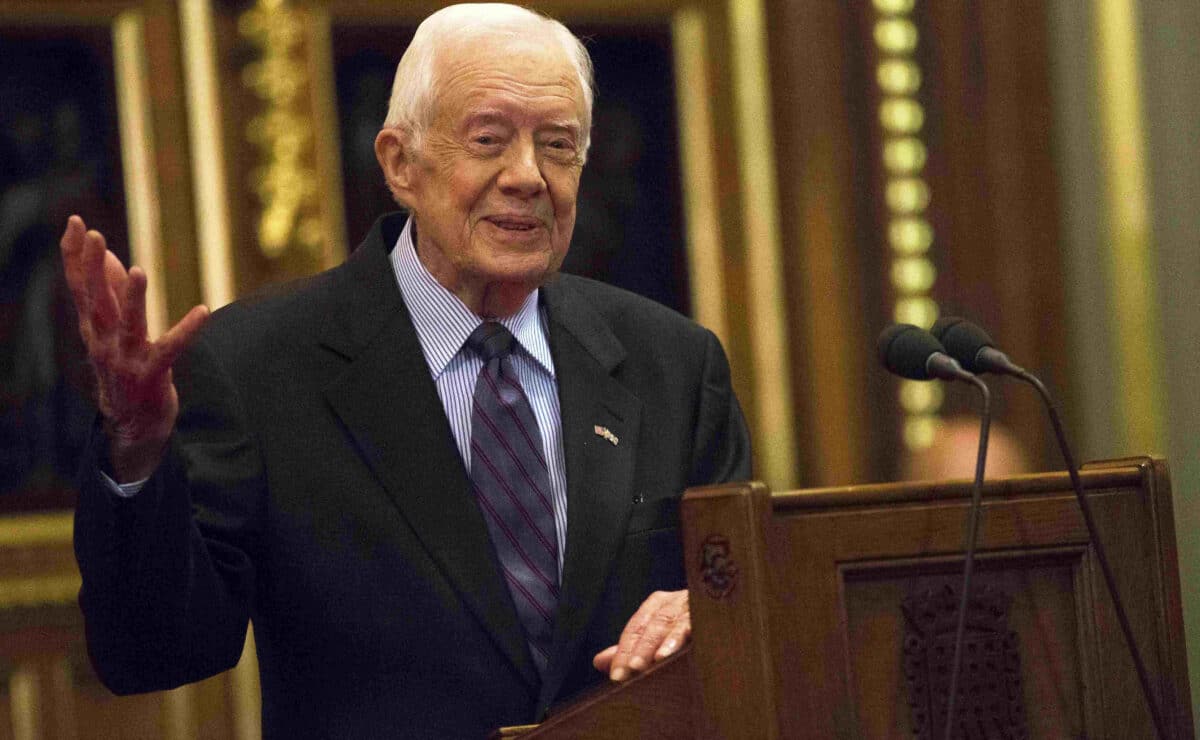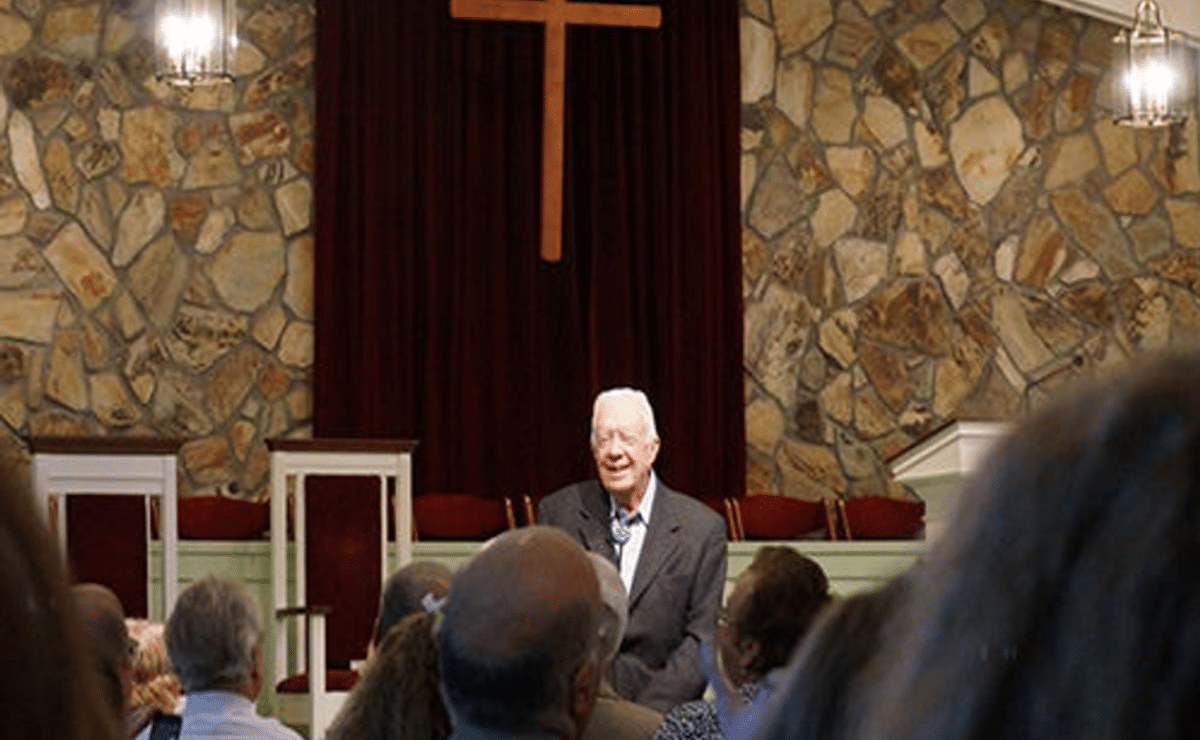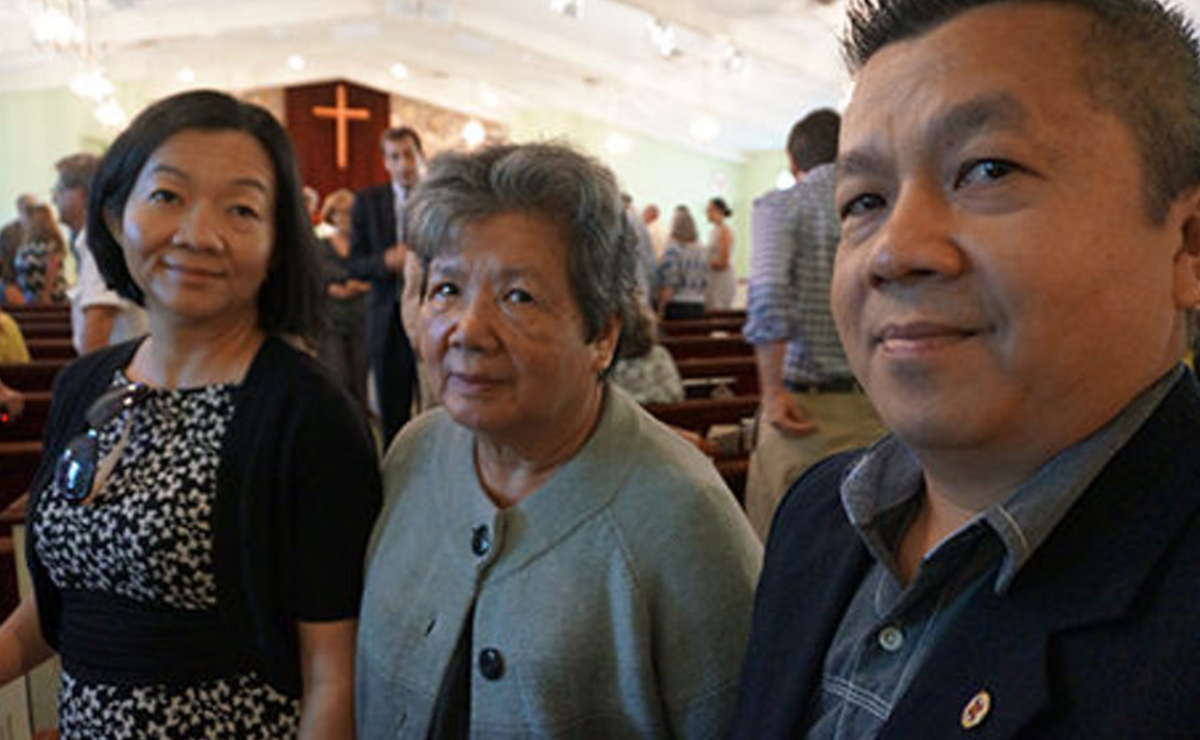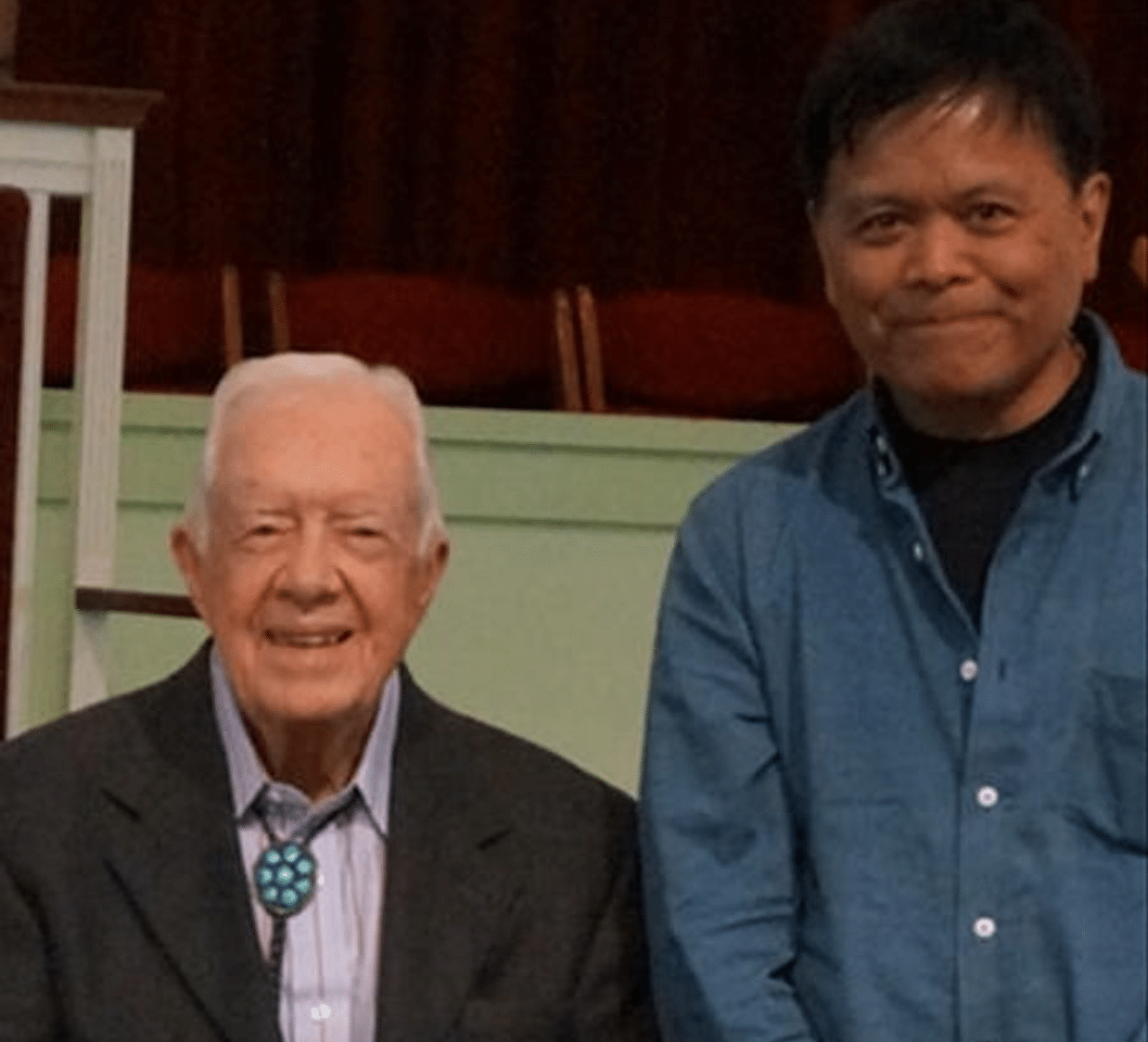Keeping President Carter’s values alive as 2024 comes to an end

Former President Jimmy Carter/FILE PHOTO (Neil Hall/Pool Photo via AP)
President Jimmy Carter at age 100, didn’t make it to the new year, nor the next presidential inaugural.
My guess is the thought of a second Trump presidency may have been too much for him to bear. A convicted felon in the White House? In the U.S. of A.?
We know who Carter voted for, and it wasn’t Trump, unless he was the one in a pantsuit.
I’ve always been a big Carter fan, so when the news came of his passing, I was brought back to a happy place.
Plains, Georgia, 2016.
I was visiting family not far from the land of presidential peanut farmers. What else do you do in Plains on a Sunday? I found myself the only full-blooded Filipino in the room at Maranatha Baptist Church, the spiritual home base for the esteemed No. 39.
And when the president looked into the pews and asked from where people hailed, I proudly declared, “California,” where the most Asian Americans live.
As I said, President Carter looked fine that Sunday in Plains. But especially fine for his job on that day – to give the Sunday school lesson on what coincidentally was the 15th anniversary of 9/11.
Carter, you may recall, made headlines in 2015 about his health when he disclosed having both brain and liver cancer. It was thought he had just two or three weeks to live.
Everyone’s always underestimating Carter.
After treatments, Carter’s forecast turned out not to be true. When I saw him, Carter seemed spry and quick-witted as he began his talk with an update.

Former President Jimmy Carter at Maranatha Baptist Church in Plains, Georgia, in 2016. CONTRIBUTED
Carter said he’d just returned from San Francisco where he had “supper” with wealthy tech giants, including the widow of Steve Jobs, Laurene Jobs, as well as the first Asian American power couple of the world, Facebook’s Mark Zuckerberg and Priscilla Chan.
“She’s Chinese,” Carter said to his 99 percent white audience.
And then he said how the Facebook couple planned to give away 99 percent of their $50 billion fortune to charity.
“Only gives them $500 million for personal expenses,” Carter joked, drawing a big laugh from the crowd.
I’m guessing he wouldn’t have been so pleased at the tech community’s capitulation to Trump. Zuckerberg and other tech giants each gave a million dollars to support January’s inaugural.
But all the tech stuff was just the warm-up for Carter’s Sunday school talk, something Carter started that year and continued doing for a few months.
The former president wore a bolo string tie anchored by an eight-stone turquoise clasp that dangled below the neck, as he began the lesson on the subject of grief.
He mentioned his own health news, but also the death of his 28-year old grandson. Drawing from scripture (on this particular day, a passage on the persecution of the Thessalonians), Carter said such moments of grief were simply tests of one’s faith, endurance and hope.
He said overcoming all that was a matter of self-confidence and relying on our God-given talents, but that it was difficult in all phases of life.
“We lack inspiration, we lack the idealism to set our goals high. We’ve been satisfied with mediocrity. And I include myself,” Carter said. People want an average life, instead of aspiring to be, “outstanding, or superb or brilliant or exceptional. And that is a problem we have,” said Carter. “We set our goals too low, we’re complacent, we’re satisfied with where we are.”
And then he applied the lesson to the historic day of 9/11. We’re diminished as a country, and our goals for our nation’s future are set too low, he said.
“I’m afraid that our country and its effect on people of other nations has suffered from the aftermath of 9/11,” Carter said. He “didn’t want to brag,” but said his goal for the country was always to be “superb and be a country that promoted peace and human rights…While I was in office, we never dropped a bomb, lost a missile, or fired a bullet.”
Too much has changed, he said.
“Since 9/11,” Carter said, “we’ve pretty much abandoned our commitment to human rights as we reacted to terrorism.” He lamented that Afghanistan had become the longest war in American history, a direct outcome of 9/11, as well as the invasion of Iraq, which Carter called “unnecessary.”
Carter, whose administration took us out of an energy crisis, also pointed out how the US is still suffering from a financial crisis that has exposed a deep inequality that has divided us as a people.
“We’ve become distrustful of people who are different from us,” Carter said. “We used to be a proud heterogeneous nation…and now we are fearful…and we’ve become poorer as a country.”
Doesn’t exactly stack up with the xenophobia of Trump, does it? Carter had a better vision of America, but look at what we’ve become.
In the pews, along with my mixed-race family (Asian, white, Latino), was another Asian American family, Tim Phan and his three-generation family of Vietnamese Americans. Phan, a computer engineer with the Air Force, came as a refugee with his sister, Heidi Phan, and his mother, Ha Ly. The native of South Vietnam was with her four grandsons, natives of the American South.

Tim Phan (right) with his family/CONTRIBUTED
Phan pointed out that Carter won a Nobel Peace Prize in 2002, a fact that belies how many conservatives see his efforts to find a peace in the Middle East as “anti-Semitic.”
Jimmy Carter’s sense of America and the world requires open minds to come together.
Too often these days, that seems near impossible.
Carter’s complaints spread to politics, in general.
“When I was president, I got as much support from Republicans in the Senate and House as I did the Democrats,” Carter said. “Now if you’re a Republican, you don’t speak to Democrats, or support a Democratic president, or vice versa. And many Americans are embarrassed by the presidential election this year.”
Carter’s Sunday School lecture was turning into a mini-State of the Union address.
“We’ve had a deterioration in the quality of life and the relationship between different people that now has become almost acceptable,” said Carter, who added the nation had changed so much it would be near impossible for the current Republican and Democratic candidates to declare their top priority to live in peace or to promote human rights.
“That was my inaugural speech, I only spoke 15 minutes,” said Carter, who noted that this vision wasn’t just his but shared by the American people who had “idealism and high standards and moral values…and now we’ve lost that.”
Of course, in Sunday School, you know how all that can easily be found again.
As Carter ended his lesson, the service with all the hymns and the doxology began.
And the promise was simple.
Stay and pray, get the photo op.

Former President Jimmy Carter with Emil Guillermo/CONTRIBUTED
So this suddenly Filipino Baptist prayed and was justly rewarded.
I’ll miss Carter the day I met him on 9/11.
We sure could use his calming wisdom for the new year. That surely would be preferable to the chaos to come.
In spite of that, let’s remember President Carter. And have a Happy New Year.
Emil Guillermo is a journalist and commentator who has covered politics – from Hawaii to California and Washington D.C. – when he hosted NPR’s “All Things Considered.” He was the first Filipino American to host a national news show in 1989. He has written his “Amok” column each week since 1995. See his Emil Amok’s Takeout on www.patreon.com/emilamok. Subscribe to YouTube.com/@emilamok1

